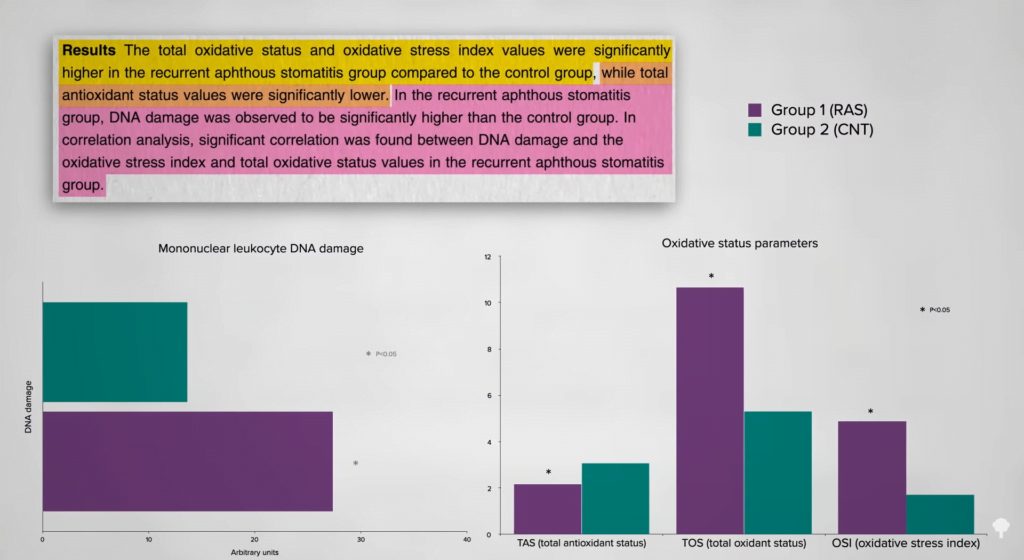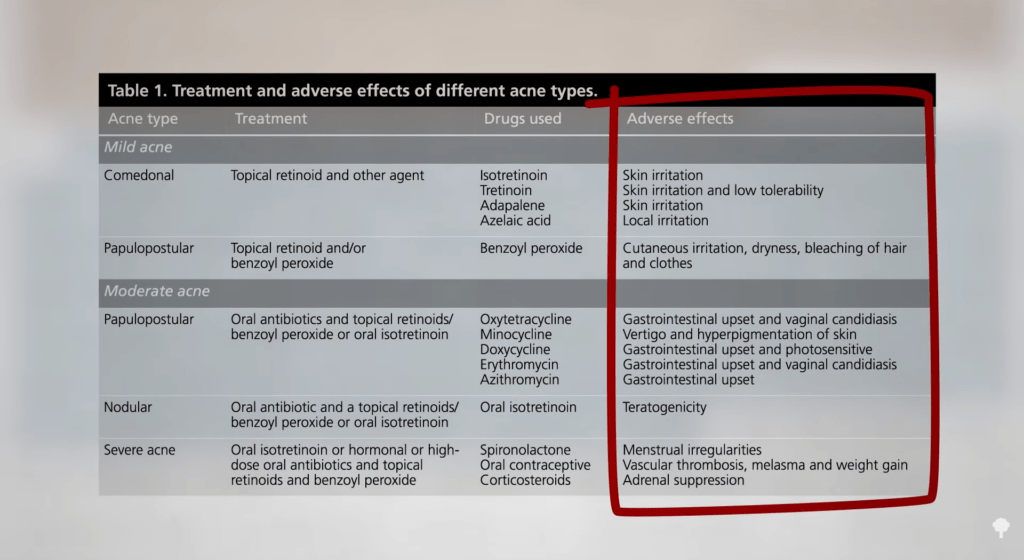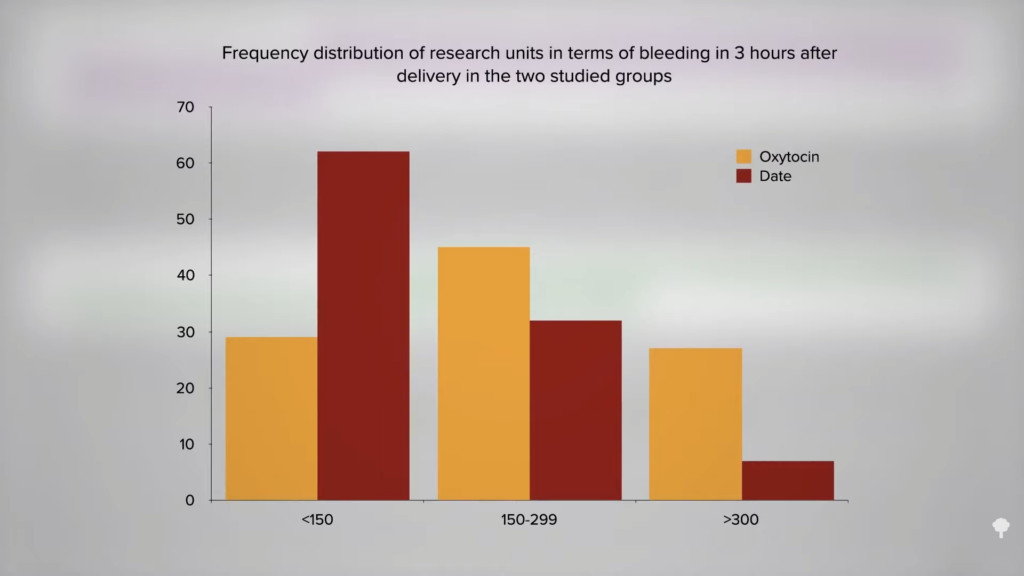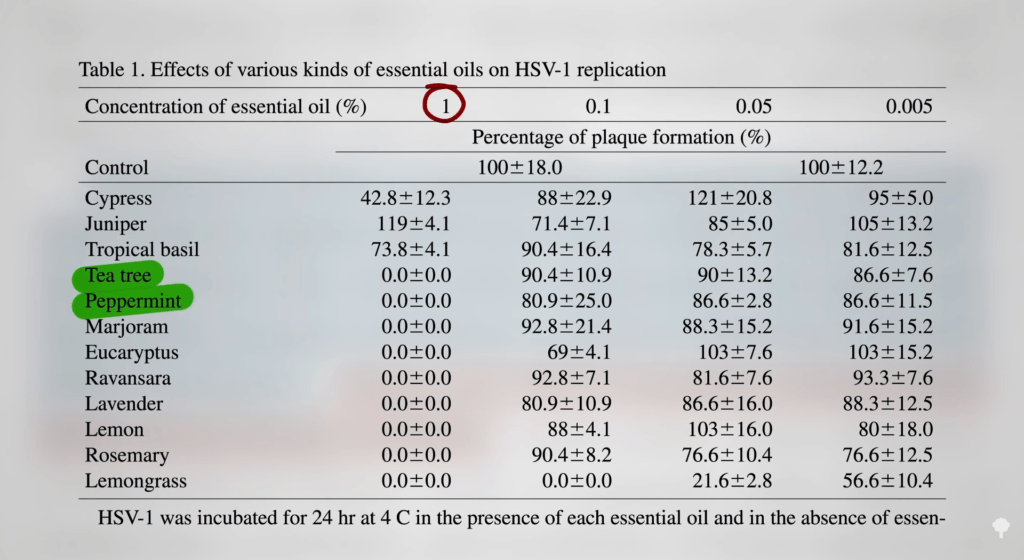
Tea Tree Oil for Cold Sores and Warts?
Does tea tree oil have enough antiviral activity to combat HSV-1 and papilloma viruses, the causes of cold sores and common warts, respectively?
“It has been reported that essential oils show not only anti-bacterial and anti-fungal activities but also antiviral activity.” As well, it’s been reported that “Bigfoot Kept Lumberjack as Love Slave,” according to in a headline in the Weekly World News. What does the science show?
How about pitting essential oils against HSV-1, the herpes virus that causes cold sores? There’s a drug called acyclovir that helps, but now there are drug-resistant strains of the virus, so researchers have been looking for other alternatives. As you can see at 0:40 in my video Benefits of Tea Tree Oil for Warts and Cold Sores, researchers found that a variety of essential oils, including tea tree oil and peppermint, could totally suppress the replication of the virus at a concentration of just 1 percent, but that was in a petri dish. What about in people?
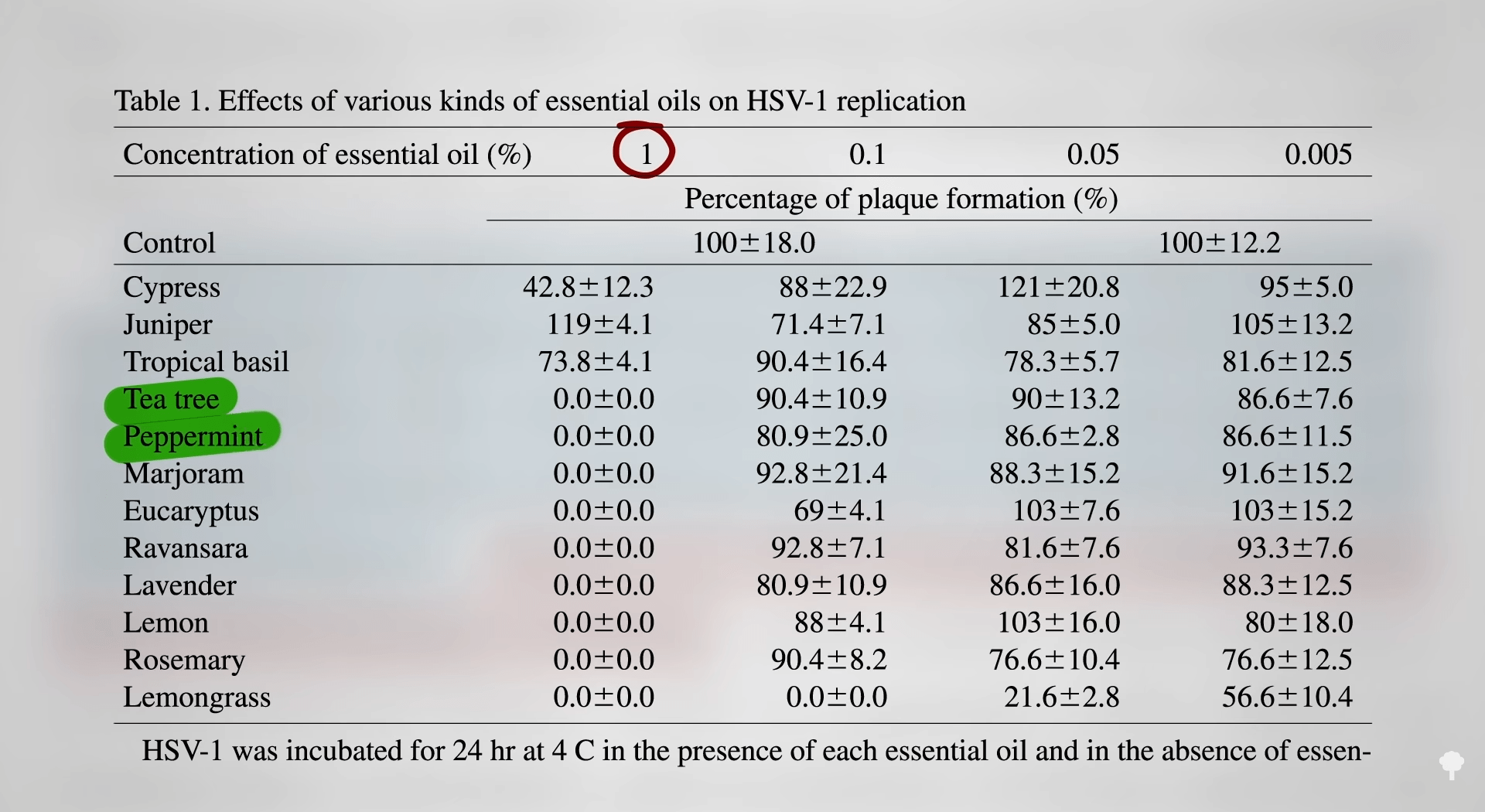
Recurrent cold sores affect as many as 20 to 40 percent of the population. Tea tree oil appeared to work in vitro, so researchers undertook a randomized, placebo-controlled study to evaluate the efficacy of topically applied tea tree oil in the treatment of recurrent cold sores. When comparing a 6 percent tea tree oil gel versus a placebo gel five times a day, researchers found that the average healing time seemed to be a few days shorter and the virus was wiped out a little earlier with the tea tree oil. However, “none of the differences between groups reached statistical significance,” meaning that a difference that small could have just been due to chance. They blamed the sample size, but maybe tea tree oil just didn’t work.
It would be interesting to put lemongrass oil to the test, since it was the only essential oil in the study still effective at wiping out viral activity at a dose that was ten times lower—0.1 percent—but it doesn’t look like that’s ever been done.
What about warts? They’re caused by viruses, too. Irish researchers reported a case of successful topical treatment of tea tree oil on hand warts in a pediatric patient. A seven-year-old girl had six warts on the tip of one of her fingers, so heavily clustered as to distort the appearance of her finger, interfering with her writing and piano lessons. She had undergone the standard caustic treatment of painting the warts with acid, but they just came back with a vengeance. So, her doctors figured, why not?, and suggested applying straight tea tree oil. After five days, all of the warts had “considerably reduced in size,” and, in another week, they were all gone, and they didn’t come back.
Not bad compared to conventional wart treatments, which can be really painful. Indeed, in this case, the tea tree oil appeared to work without any side effects, only affecting the warts, in contrast to the standard acid treatments that can damage the surrounding tissue. So, the researchers made an urgent call for randomized, controlled trials, but who’s going to fund those when tea tree oil costs only pennies per dose? The reason we’d particularly like to see randomized trials for wart treatments is that they tend to get better on their own, disappearing without any treatment typically within a year or two. That’s why, “Since antiquity it has been believed that warts can be removed by various magical processes.” You pay some witch doctor, your warts go away on their own, and they take the credit.
Surprisingly, such “charming” of warts was actually put to the test and had no effect on the warts. It’s interesting how they do those types of studies, though. For example, one study tested whether warts can be prayed away. The researchers used a placebo prayer, so the participants didn’t know whether they were in the prayed-for group or the placebo-prayer group. They did this to exclude the possibility that participants mind-over-mattered their own wart cure. That’s been put to the test, too. In another study, one from the 1960s, researchers used a “magic” wand secretly connected to a circuit such that it tingled when the wand touched the wart to maximize any placebo effect. And, wrote the scientists, the patients were predominantly “Negroes who were mostly unsophisticated and who had a very deep belief in magic.” Yet, despite the participants’ purported “deep belief in magic,” more warts actually disappeared spontaneously in the untreated group compared to the magic-wanded ones, with no hint of the mere suggestion of magical cures being effective.
I was surprised studies like this were not only performed but published in respected journals. Evidently publication followed a “considerable discussion” among the journal editors, who said they “promised to keep an open mind, but not so open that our brains fall out.”


